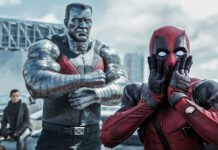2001: A Space Odyssey (1968)
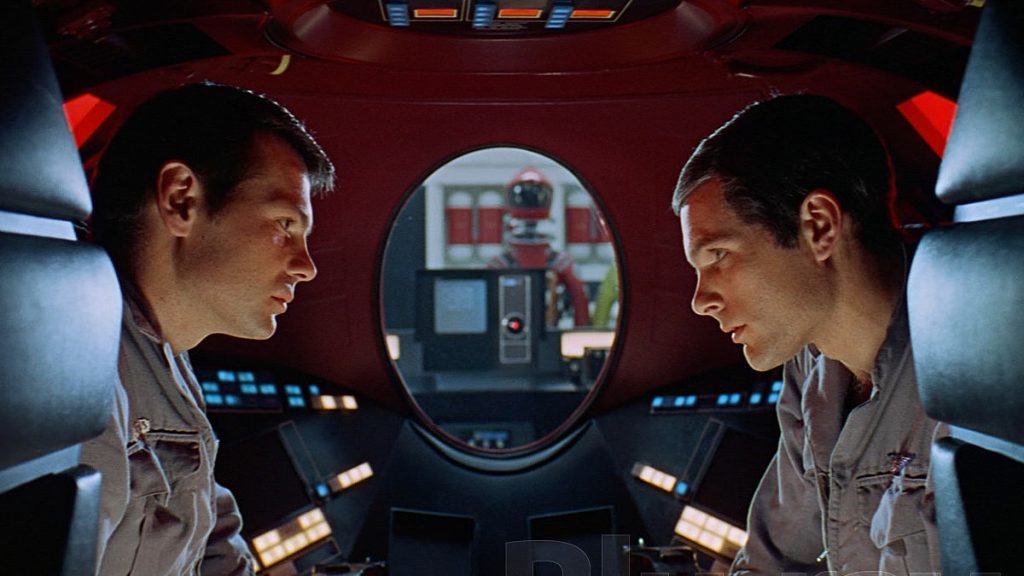
When Stanley Kubrick suggested a movie idea to British writer Arthur Clarke, Clarke responded enthusiastically. “The ‘really good’ science-fiction movie is a great many years overdue,” he wrote.
The question – which the two never really resolved – was which really good movie to make. A film about the triumph of science and technology? Or a film about the timeless yearnings of the human spirit?
While Kubrick, a student of human nature, director of searing and discomforting films like Paths of Glory and Lolita, mined Japanese sci-fi movies for special effects, Clarke, a communications satellite pioneer as well as a writer, worked up a script centred on what he later dubbed “the God concept”.
Encompassing everything from the dawn of man, the space race, artificial intelligence, space exploration and trans-dimensional travel, 2001 centres on the duel between David Bowman (Keir Dullea) and the inadvertently-designed-to-be-murderous HAL, a computer that is guiding his ship to Jupiter. We tend to assume Clarke provided the film’s gosh-wow factor and Kubrick provided the unease. Not so: his 1960 story, The Challenge of the Spaceship shows Clarke already painfully aware of the challenges faced by a “little, self-contained community floating in vacuum millions of miles from anywhere, kept alive in a bubble of plastic and metal” with “absolutely nothing” happening.
The boredom and incipient madness that haunt both Bowman and the ship’s poor, boxed-in AI are the film’s chief point: that we cannot live by reason alone. We need something more.
Hidden Figures (2016)
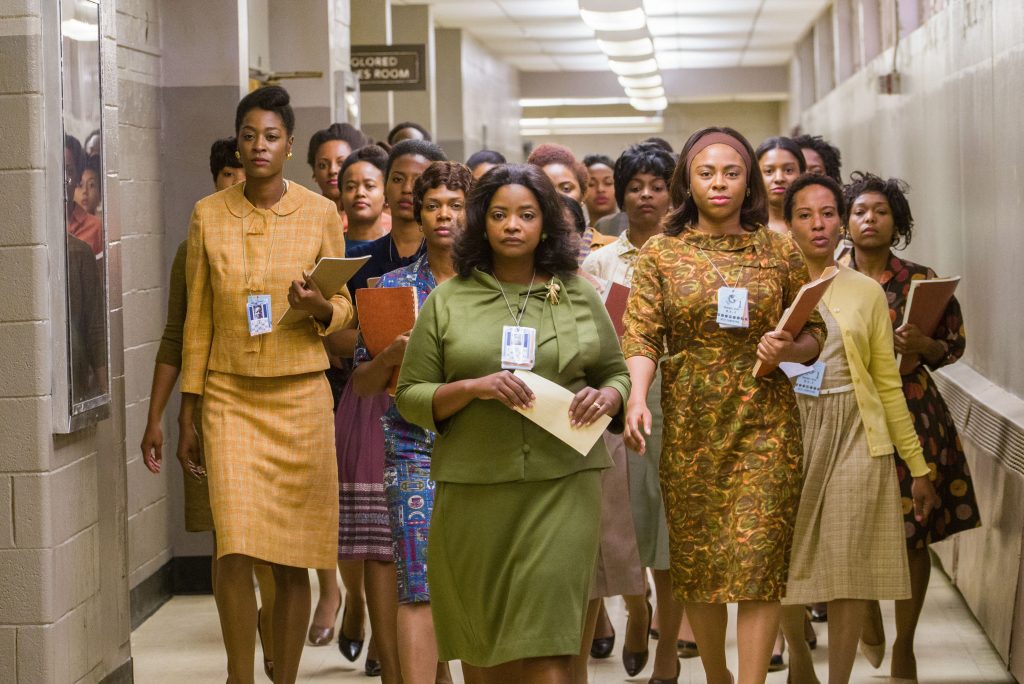
At NASA’s Langley Research Center in 1961, three Black female mathematicians, Katherine Johnson (Taraji P. Henson), Dorothy Vaughn (Octavia Spencer) and Mary Jackson (Janelle Monáe), contribute their considerable mathematical ability to the agency’s efforts to launch white men into space. The unit they work in is segregated by gender and race but the difficulties they face are ignored by many of their colleagues. Their boss, Al Harrison, (a composite fictional character played by Kevin Costner), feels otherwise and proceeds to desegregate NASA single-handedly, armed only with an acid tongue and a sledgehammer.
First Man (2018)
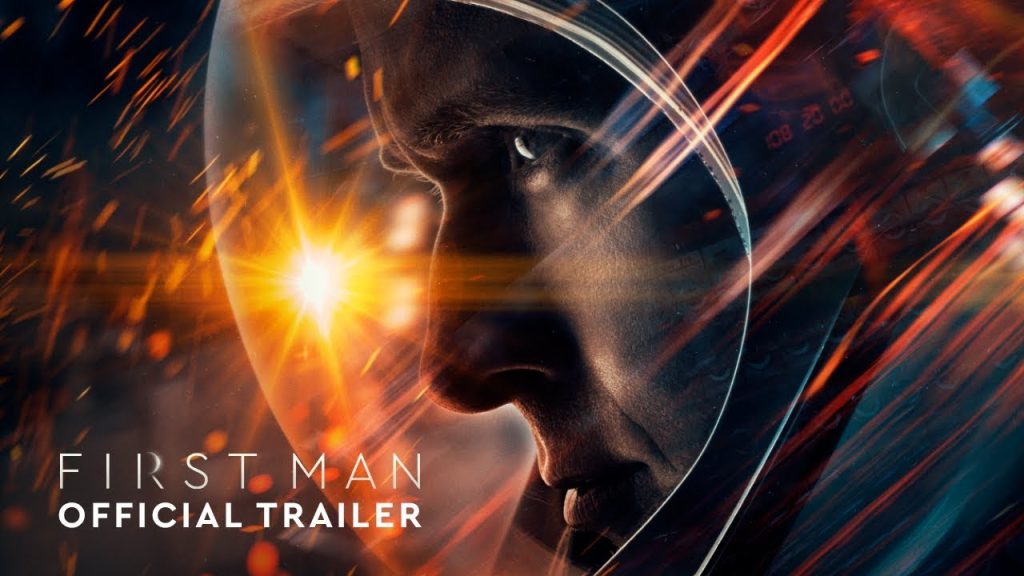
As if landing on the moon wasn’t enough, Neil Armstrong spent the rest of his life having to describe the experience to the world’s media. No wonder he became something of a recluse – which of course only served to generate even more media interest.
Armstrong, an aeronautical engineer and university professor, was a man who enjoyed his privacy. Cornered, what could he do but tell the same story again and again and again? Disappointed, their curiosity unslaked, people called him dull.
Two years after hurling a vocally challenged Ryan Gosling into his musical La La Land, Damien Chazelle cast him as Neil Armstrong, in a movie that promised to locate Armstrong’s beating heart and rich emotional life. As such, First Man is a triumph.
Gosling is the film actors’ film actor, capable of expressing deep emotion with astounding economy. Playing “buttoned up” hampers him hardly at all. And he is given plenty to work with. Josh Singer’s ingenious script gives Armstrong a profound and personal motivation for wanting to reach the moon that in no way interferes with the historical record, or trivialises its celebrated subject. As for the moon landing itself, it represents a milestone in cinematic technique. You’ll believe you were there, and you’ll wonder, deeply, why Armstrong, or anyone else for that matter, ever went.
The Martian (2015)
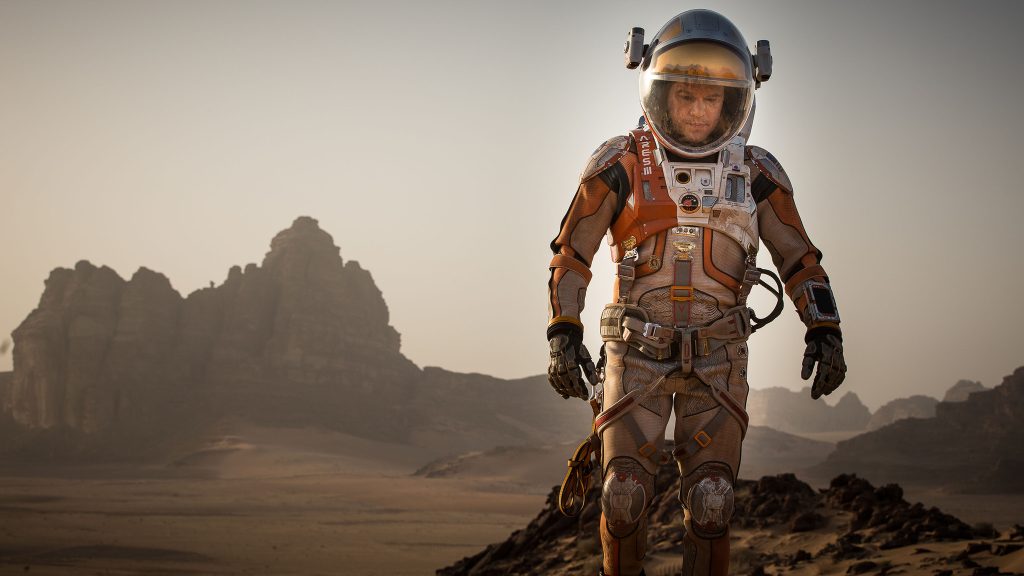
Premised on a single, staggering inaccuracy (a Martian storm could never get up the energy to blow a spacecraft over) The Martian is an otherwise cleverly figured-out tale of how an astronaut (Mark Watney, played by Matt Damon), left for dead on the surface of Mars, might survive for four years on a diet of potatoes grown in recycled faecal matter.
Based on a book (by Andy Weir) that itself began life as a series of blog posts, Scott’s film retains an endearing, cobbled-together quality, which neatly (and by the end, really quite movingly) reflects Watney’s scrabble for survival.
Boasting habitat, spacesuit, spacecraft and launch vehicle designs that all carried NASA’s stamp of approval, The Martian flits between Watney’s Martian base, the ship in which his crew mates are returning home, and the offices and control rooms on Earth where everybody is frantically trying to do the right thing, as their chances of saving Watney narrow to a point.
An unashamed advertisement for NASA’s plans for Mars, and a celebration of its crewed programme’s rebirth after the Challenger disaster in 1986, The Martian already feels slightly dated. But its invention and good humour are timeless.



